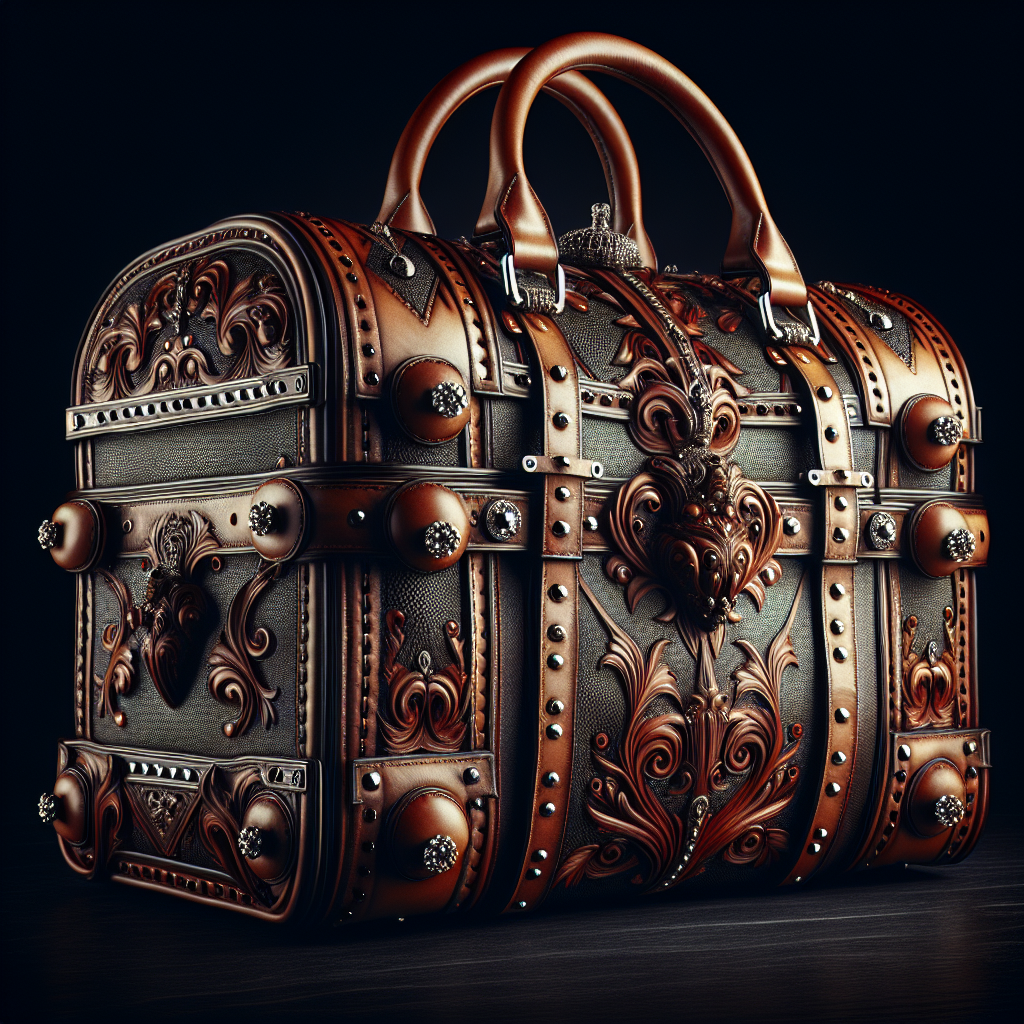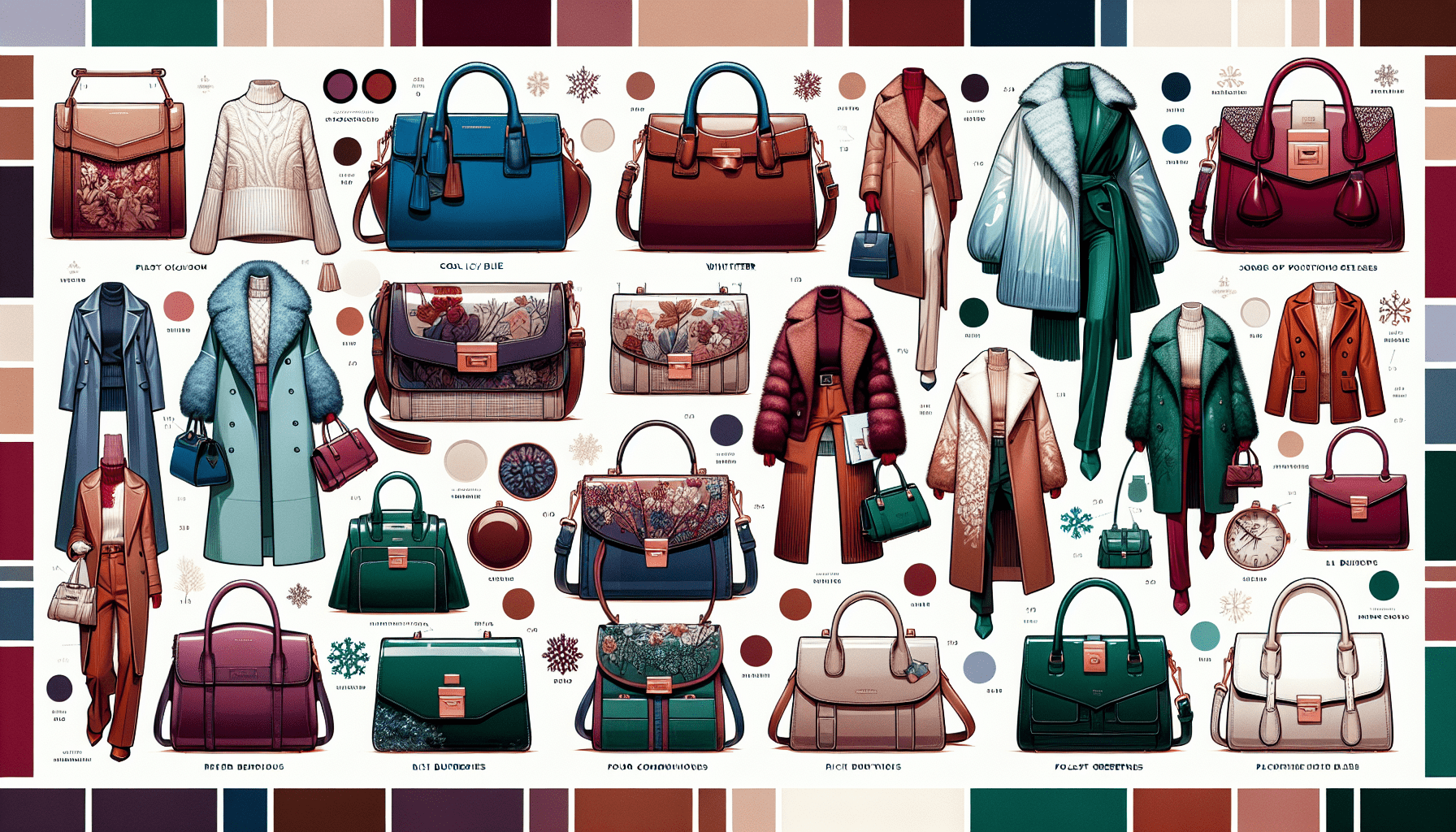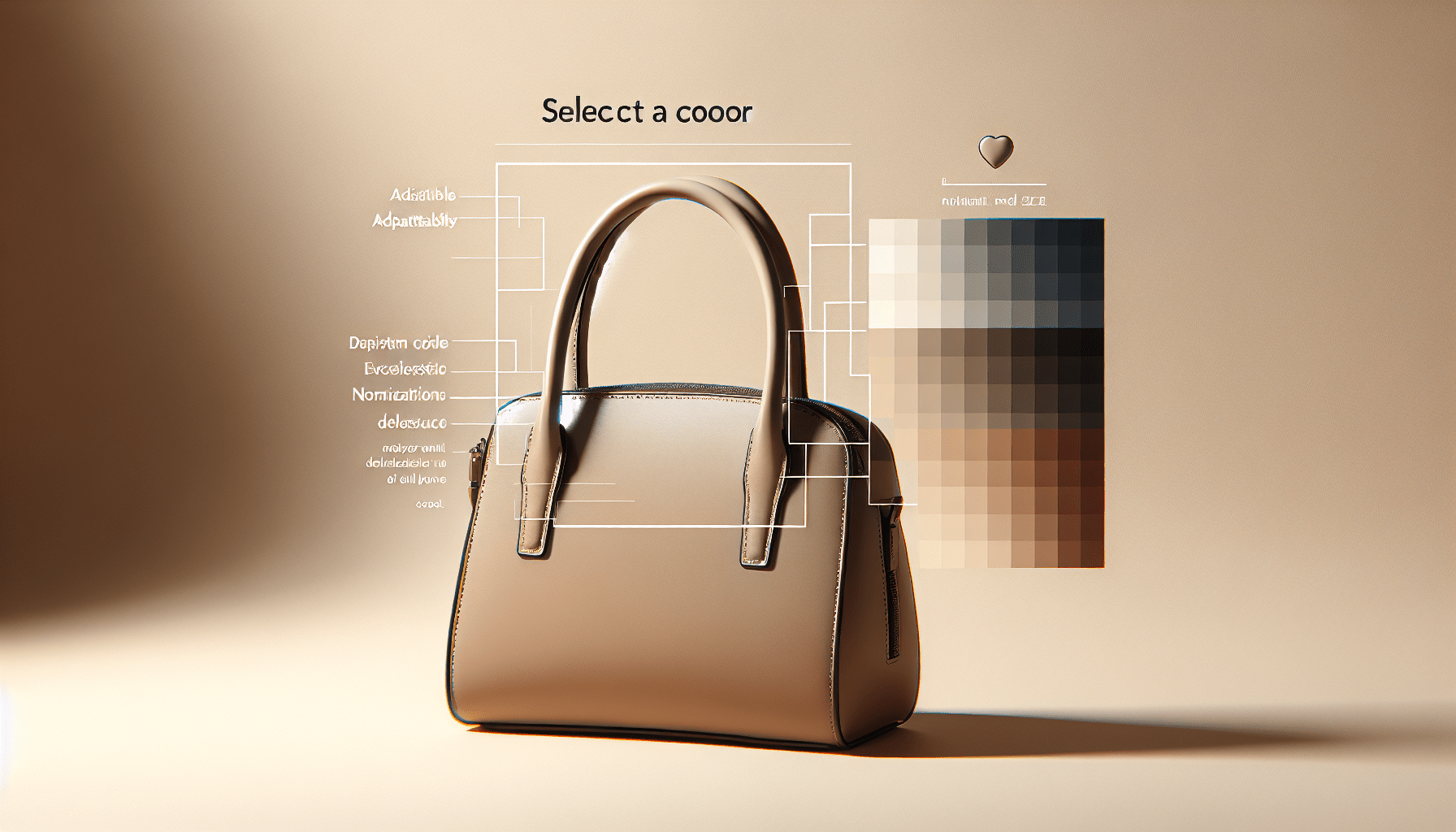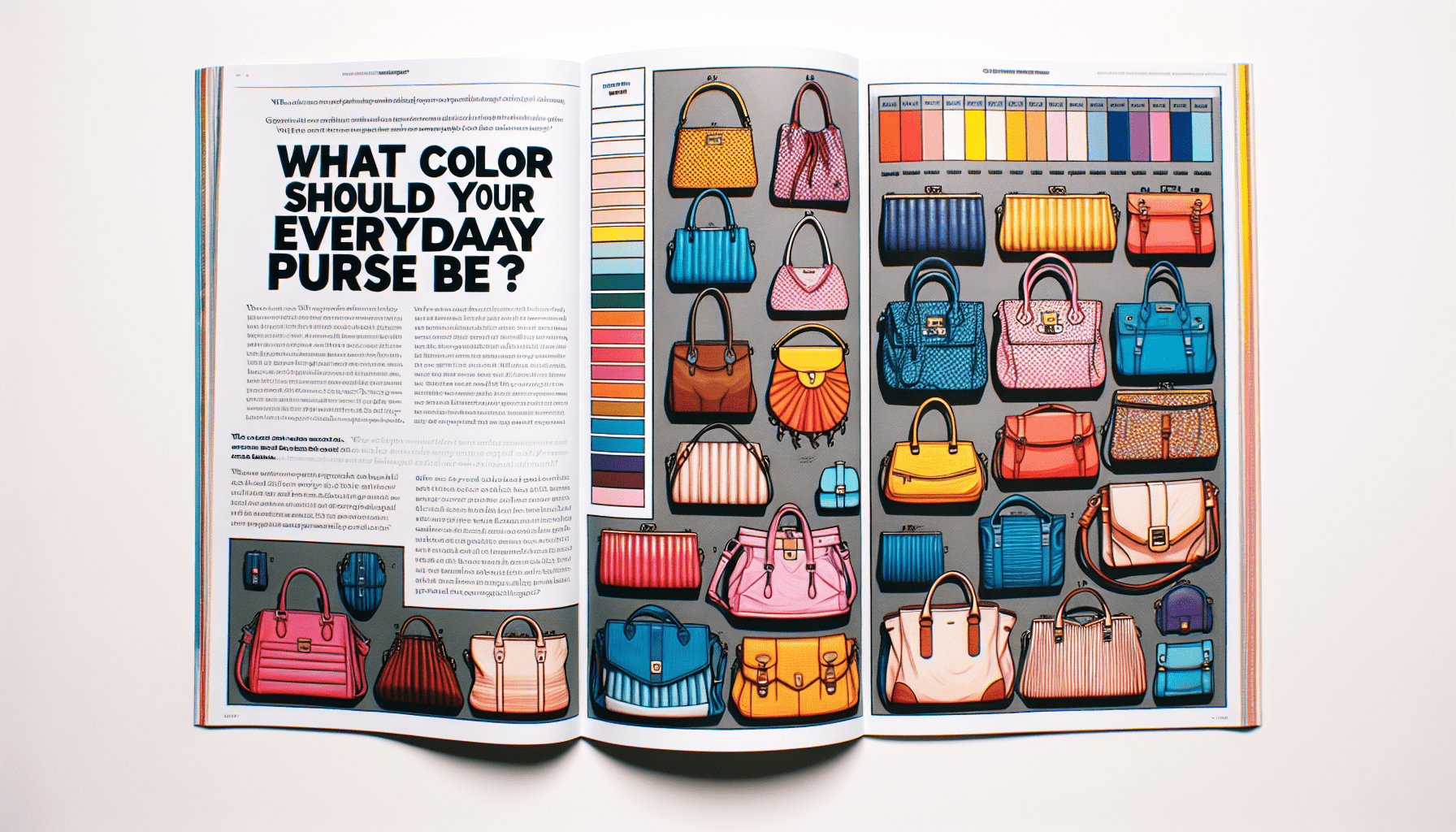Why Are Designer Handbags So Expensive
Have you ever wondered why designer handbags come with such a hefty price tag? It seems like every season, new collections are released, featuring luxurious materials and impeccable craftsmanship. But what is it exactly that makes these bags so expensive? From the choice of high-quality materials to the time-consuming process of creating each piece by hand, there are several factors that contribute to the elevated price of designer handbags. In this article, we will explore the reasons behind the seemingly exorbitant prices and gain a better understanding of why these accessories are held in such high regard.
High-end Materials and Craftsmanship
Use of Premium Leather
Designer handbags often use premium leather sourced from the finest tanneries around the world. This high-quality material not only looks and feels luxurious, but it also ensures durability and longevity. Premium leather undergoes strict quality control measures to ensure that only the best hides are used in the production of these bags. The use of such high-end materials increases the cost of production but guarantees that customers are getting a top-quality product.
Attention to Detail
One of the reasons why designer handbags are so expensive is the attention given to every single detail during the production process. Skilled craftsmen meticulously handcraft each bag, focusing on even the smallest elements. From perfectly aligned stitching to precisely placed hardware, every detail is carefully considered. This level of craftsmanship ensures that the final product is of superior quality, but it also contributes to the higher price tag.
Handmade Construction
Unlike mass-produced bags, designer handbags are typically made by skilled artisans using traditional techniques. Handmade construction allows for greater control over the quality and precision of every stitch, resulting in a bag that is made to last. Each bag is crafted with care and precision, taking hours, and sometimes even days, to complete. This level of craftsmanship and attention to detail is a significant factor in the higher cost of designer handbags.
Limited Production
Designer brands often produce their handbags in limited quantities to maintain exclusivity and create a sense of rarity. This limited production is a deliberate strategy that helps elevate the desirability and value of these bags. By creating a demand that exceeds the supply, designers can command higher prices for their products. Limited production also allows brands to maintain a higher level of control over the quality of their products and ensure that each bag meets their standards.
Quality Control
Designer brands place a strong emphasis on quality control throughout the production process. Every bag undergoes rigorous inspections to ensure that it meets the brand’s standards of excellence. This means that any imperfections are identified and addressed before the bag reaches the hands of the customer. The meticulous quality control measures contribute to the high price tag of designer handbags, as they guarantee a product that is of impeccable quality.
Brand Reputation and Exclusivity
Luxury Brand Name
Designer handbags are often associated with prestigious and highly recognized luxury brands. These brands have spent years cultivating a reputation for excellence, craftsmanship, and style. The value of their brand name contributes to the higher price of their products. Customers are willing to pay a premium for a handbag that carries the emblem of a renowned luxury brand.
Status Symbol
Owning a designer handbag has become a status symbol in society. The ownership of a luxury bag is often perceived as a symbol of wealth, success, and taste. The exclusivity and high price tag associated with designer handbags only serve to enhance their status symbol appeal. Carrying a designer bag allows individuals to showcase their discerning taste and elevate their social standing.
Exclusivity
Designer brands often use exclusivity as a marketing strategy to create a sense of desirability and scarcity. Limited production runs, limited editions, and collaborations with celebrities or artists contribute to the exclusivity of designer handbags. Owning a bag that is not readily available to the masses adds to its perceived value and justifies the higher price.
Brand Heritage
Many designer brands have a rich heritage and history that spans decades or even centuries. These brands often have a story to tell, and their handbags carry a sense of tradition and legacy. The craftsmanship and timeless designs associated with these brands are a testament to their heritage. The value and reputation established throughout the years contribute to the higher cost of designer handbags.
Celebrity Endorsements
Designer brands have long recognized the influence of celebrities. Many celebrities are known for their love of luxury fashion, and their endorsement of a particular brand or handbag can significantly impact its popularity and perceived value. The association with well-known personalities further enhances the exclusivity and desirability of designer handbags, contributing to their higher price points.
Design and Innovation
Creative Designers
Designer handbags are often the creations of highly talented and creative designers. These designers bring their unique vision and artistic flair to the drawing board, resulting in bags that stand out from the crowd. The innovative designs they create are a reflection of their expertise and ability to push boundaries. The creativity and originality of designer handbags contribute to their higher cost.
Uniqueness
Designer handbags often boast unique design elements that set them apart from mass-produced bags. The use of unconventional shapes, distinctive hardware, and unexpected color combinations adds to their uniqueness. These one-of-a-kind features make them highly sought after by fashion enthusiasts who appreciate the exclusivity and individuality that designer bags offer. The rarity and distinctiveness of these bags contribute to their luxurious price tag.
Innovation in Materials
Designer brands are constantly exploring new materials and techniques to create innovative and cutting-edge handbags. From exotic skins to unusual fabrics, these brands are at the forefront of material innovation. Introducing new materials not only adds to the visual appeal of the bags but also increases their durability and functionality. The research and development invested in sourcing and creating unique materials contribute to the higher cost of designer handbags.
Trendsetting Designs
Designer handbags often set the trends in the fashion industry. Their designs can heavily influence the styles and aesthetics that dominate the market. By consistently introducing new and innovative designs, designer brands stay ahead of the curve and maintain their relevance. The ability to set trends is a testament to the creativity and vision of these brands and adds to the allure and value of their handbags.
Research and Development
Designer brands invest significant resources in research and development to create handbags that are not only visually stunning but also practical and functional. This involves extensive testing and prototyping to ensure that the bags meet the demands and expectations of their customers. The commitment to continuous improvement and innovation is reflected in the higher price tag of designer handbags.
Marketing and Advertising
Celebrity Promotions
Designer brands often collaborate with celebrities to promote their handbags. By featuring popular figures in their advertising campaigns and having them carry their bags at events, these brands can reach a wider audience and tap into the influence of celebrities. The association with well-known personalities enhances the desirability of their handbags, justifying the higher price associated with these luxury products.
High-End Fashion Shows
Designer brands showcase their newest collections at high-end fashion shows, where the world’s most influential fashion editors, buyers, and celebrities attend. These shows create hype and generate media attention, allowing the brand to increase its visibility and credibility. The investment in staging elaborate fashion shows adds to the overall marketing and advertising expenses, which ultimately contribute to the higher cost of designer handbags.
Strategic Branding
Designer brands employ strategic branding techniques to position themselves as leaders in the luxury fashion industry. Their branding efforts include carefully curating their image, messaging, and visual identity to appeal to their target market. By cultivating a strong and desirable brand image, these brands can command higher prices for their products. The expenses associated with maintaining and building a luxury brand are reflected in the price of their handbags.
Artistic Campaigns
Designer brands often commission renowned photographers, stylists, and creative directors to create visually stunning and artistic advertising campaigns. These campaigns aim to evoke emotion, capture attention, and leave a lasting impression on consumers. The investment in these high-quality and artistic campaigns contributes to the overall marketing and advertising expenses, which are ultimately factored into the cost of designer handbags.
Targeted Marketing
Designer brands leverage targeted marketing strategies to reach their ideal customers. They carefully select the platforms, publications, and influencers that align with their brand image and target demographics. By focusing their marketing efforts on reaching the right audience, these brands can create a sense of exclusivity and desirability for their handbags. The costs associated with targeted marketing contribute to the higher price tags of designer handbags.
The article will continue in the next response.




